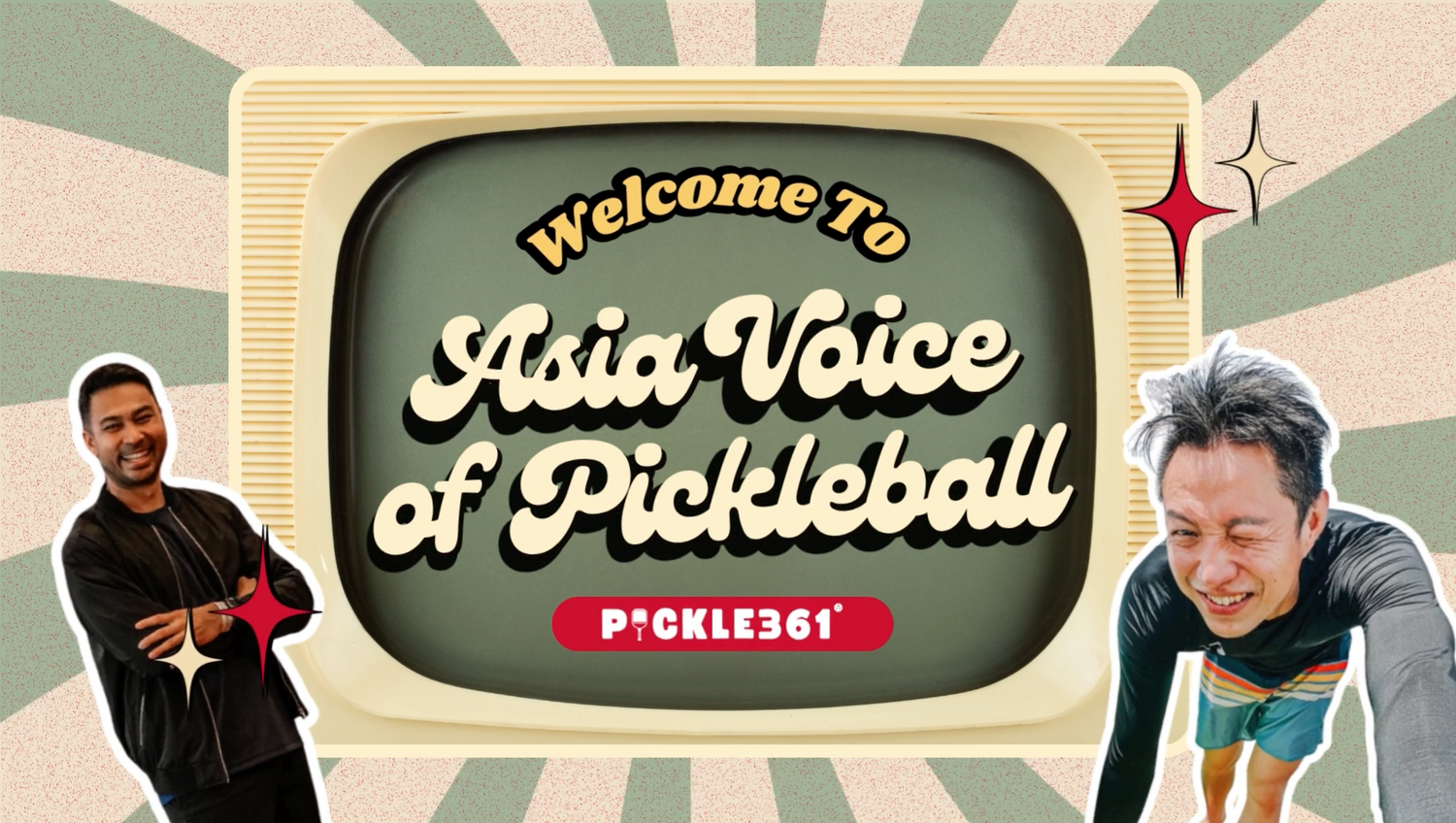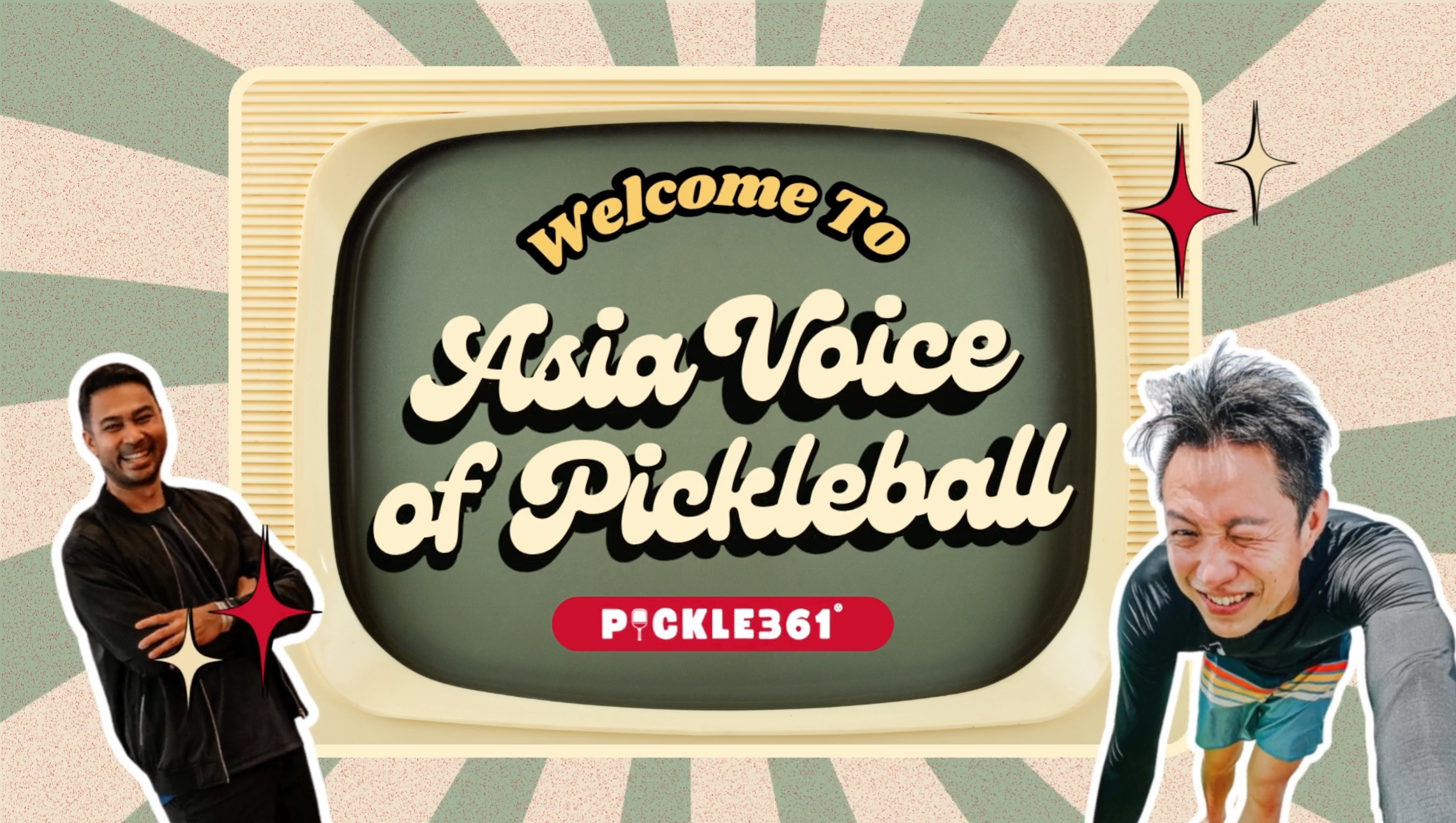
Steve Kuhn Says It Loud: “Asia Will Shape the Future of Pickleball”
Sureena Shree ChandrasekarPickleball pioneer Steve Kuhn didn’t come to Malaysia to play it safe. Standing before a packed house of club leaders, players, and partners at Ramsports Stadium, Kuhn dropped a bold truth:
“You’re growing faster here in Asia than we ever did in the U.S. KL might have the most impressive density of high-quality facilities I’ve ever seen.” This from the man who helped bring the sport to over 40 million players across America.
But Kuhn wasn’t just here to admire progress, he came to make it clear that Asia is no longer a follower in the global pickleball story. It’s the main character.

The Bigger Dream: 100 Million Players By 2030
After achieving his goal of growing U.S. pickleball from 1 to 40 million players by 2024 - six years ahead of schedule. Kuhn shared his new, audacious goal: 100 million global players by 2030.
“Over half of those players will be in Asia. That’s not a fantasy, it’s where the momentum is already going.”
And he’s backing this belief with action, supporting the rise of PCL Asia as a continental team-based platform that blends joy, community pride, and serious gameplay.
PCL Isn’t Just a Tournament - It’s a Movement
Kuhn made it crystal clear: PCL Asia isn’t trying to be another pro circuit. “This is about club vs. club. About your friends showing up to cheer. About joy.”
Inspired by the club league model he witnessed in his hometown of Minneapolis where local teams won, celebrated, and built culture. Kuhn sees PCL as Asia’s next big thing.
“Someday, when Malaysia faces Vietnam or China in a packed venue, people will cheer like it’s a World Cup final. I’ve seen it in badminton. I know pickleball can have that same passion.”
Why the Best Players Could Come From Asia
Steve didn’t shy away from stating what many are starting to suspect:
“Eventually, the best players in the world will come from Asia. It’s a numbers game. Look at squash, look at badminton. Sports that began in the West are now ruled by Asia. Pickleball will follow.”
But there’s a catch, talent needs training. Kuhn emphasized that Asia still lacks elite training hubs where high-level players can compete and grow together. He referenced his Dreamland facility in Texas, where players like Ben Johns leveled up by playing and learning together, every day.
That’s why Ramsports will launch a professional training academy in China this year and bring monthly coaching camps to Malaysia and Vietnam starting this August.

On DUPR: More Than Just a Number
Kuhn also weighed in on DUPR manipulation, revealing a cultural twist.
“In the U.S., players cheat to look better. In Asia, they cheat to win easier. Both come from how much people care.”
His advice? Use DUPR the way it was meant, to match people fairly, increase playtime, and make the sport more fun.
“When clubs group players by DUPR, people show up more. They stay longer. They improve faster.”
The Real Reason He Believes in PCL
It’s not just about rankings or medals. For Kuhn, it’s emotional.
“I’ve never seen a sport bring so much joy, so fast. I walk into clubs and I see it, people don’t just play. They stay. They talk. They build community. That’s what PCL is tapping into.”
From shouting out Malaysia’s skyrocket growth to dreaming of a day where national pickleball teams train for the Olympics, Kuhn's message was clear:
“Season 1 might not be perfect. But it’s going to be fun. It’s going to be meaningful. And it’s going to get better every single year.”
What Comes Next
With 16 Malaysian teams gearing up to fight for a spot in Shenzhen this August, Kuhn is already looking ahead to Season 2 - more teams, more countries, more intensity.
“Today it’s Malaysia, Vietnam, China, Singapore, the Philippines. Tomorrow? Asia will be the epicenter of the pickleball universe.”
Bottom line: PCL Asia isn’t a warm-up act. It’s the start of something bigger.
The world is watching. And for the first time, the future of global pickleball might just have an Asian accent.
This interview is brought to you in collaboration with @picklekopitiam and @thepickleballgang










